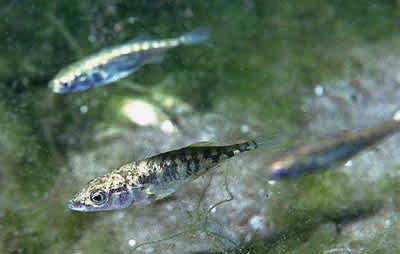Study: Fish Can Form Bonds, Make “Friends”
OutdoorHub Reporters 07.10.14

Scientists in a joint study conducted by McMaster University, the University of St. Andrews, and Anglia Ruskin University have found that fish can recognize other fish and even develop preferences towards one another. According to the BBC, the researchers found that tiny sticklebacks are able to remember the individual fish they have spent time with, and are even capable of forming “cliques.”
“We think the fish prefer to shoal with familiar individuals and interact more with them,” said Mike Webster, one of the scientists working on the study at the University of St. Andrews. “They tend to follow each other so if one fish finds food it’s more likely that the one following it is going to be familiar and will find the food.”
In conducting the study researchers separated 80 sticklebacks into two groups for six weeks and later divided them again into groups of 10. The team then observed how the fish interacted with individuals they were familiar with, and fish they did not previously know. The sticklebacks swam closer to fish they knew from the previous group rather than strangers. These small social groups also played a beneficial role in how the fish discovered hidden caches of food.
“Our study has shown that we can use statistical tools to uncover the fine structure of animal groups, to understand how they move and to predict how information passes among individuals,” Webster told Discovery News.
Researchers say the discovery could lead to a better understanding how animals pick up behaviors from others in the same social group. This in turn will allow scientists to predict disease trends and draft better methods of wildlife management. The study was published in a recent issue of the journal Proceedings of the Royal Society B.

